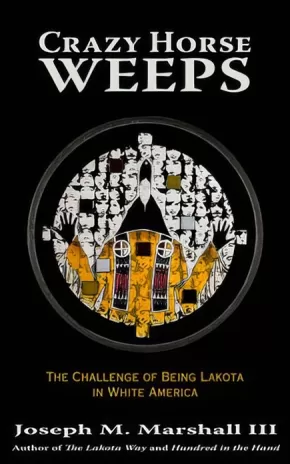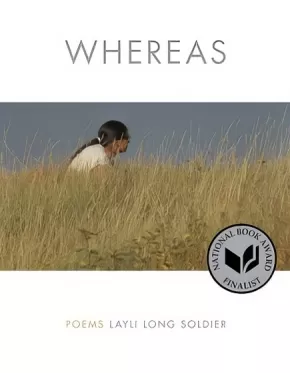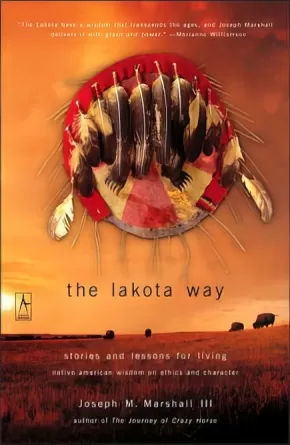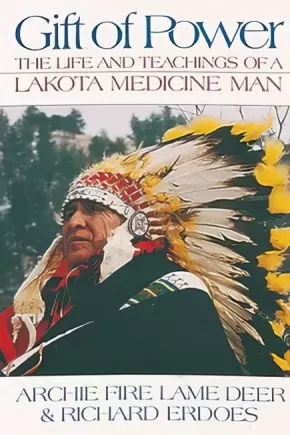Lakota
Synopsis:
For Lakota, Dakota, and Nakota people, historical trauma, chronically underfunded federal programs, and broken promises on the part of the US government have resulted in gaping health, educational, and economic disparities compared to the general population. Crazy Horse Weeps offers a thorough historical overview of how South Dakota reservations have wound up in these tragic circumstances, showing how discrimination, a disorganized tribal government, and a devastating dissolution of Lakota culture by the US government have transformed the landscape of Native life. Yet these extraordinary challenges, Marshall argues, can be overcome. Focusing on issues of identity and authenticity, he uses his extensive experience in traditional Lakota wisdom to propose a return to traditional tribal values and to outline a plan for a hopeful future.
Additional Information
|
Synopsis:
WHEREAS her birth signaled the responsibility as mother to teach what it is to be Lakota therein the question: What did I know about being Lakota? Signaled panic, blood rush my embarrassment. What did I know of our language but pieces? Would I teach her to be pieces? Until a friend comforted, Don’t worry, you and your daughter will learn together. Today she stood sunlight on her shoulders lean and straight to share a song in Diné, her father’s language. To sing she motions simultaneously with her hands; I watch her be in multiple musics. —from “WHEREAS Statements”
WHEREAS confronts the coercive language of the United States government in its responses, treaties, and apologies to Native American peoples and tribes, and reflects that language in its officiousness and duplicity back on its perpetrators. Through a virtuosic array of short lyrics, prose poems, longer narrative sequences, resolutions, and disclaimers, Layli Long Soldier has created a brilliantly innovative text to examine histories, landscapes, her own writing, and her predicament inside national affiliations. “I am,” she writes, “a citizen of the United States and an enrolled member of the Oglala Sioux Tribe, meaning I am a citizen of the Oglala Lakota Nation—and in this dual citizenship I must work, I must eat, I must art, I must mother, I must friend, I must listen, I must observe, constantly I must live.” This strident, plaintive book introduces a major new voice in contemporary literature.
Additional Information
114 pages | 7.04" x 8.84"
Synopsis:
Joseph M. Marshall’s thoughtful, illuminating account of how the spiritual beliefs of the Lakota people can help us all lead more meaningful, ethical lives.
Rich with storytelling, history, and folklore, The Lakota Way expresses the heart of Native American philosophy and reveals the path to a fulfilling and meaningful life. Joseph Marshall is a member of the Sicunga Lakota Sioux and has dedicated his entire life to the wisdom he learned from his elders. Here he focuses on the twelve core qualities that are crucial to the Lakota way of life--bravery, fortitude, generosity, wisdom, respect, honor, perseverance, love, humility, sacrifice, truth, and compassion. Whether teaching a lesson on respect imparted by the mythical Deer Woman or the humility embodied by the legendary Lakota leader Crazy Horse, The Lakota Way offers a fresh outlook on spirituality and ethical living.
Additional Information
256 pages | 4.88" x 7.76"
Synopsis:
With surprising candor, Archie Fire Lame Deer describes the magic and power of the Native American spirit life. Archie's compelling narrative recaptures his boyhood years under the tutelage of his medicine-man grandfather on a South Dakota farm. We follow him from Catholic school runaway to Army misfit, from bartender to boozer, from Hollywood stuntman to chief rattlesnake catcher of the state of South Dakota. And we exult with him when he comes home to the world of spirit.









